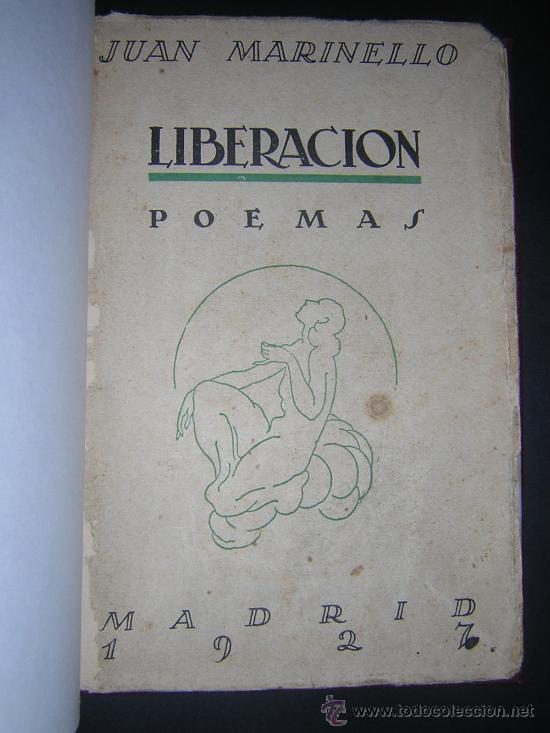4.1.1.11 The poetic work of Juan Marinello (1898 – 1977)

The “poet on vacation,” as Juan Marinello called himself, was above all a dapper essayist, but he still left behind some poetic pieces worthy of attention, most of them collected in the volume “Liberación,” published in 1927, in addition to individual poems that he published in magazines of the time, which were well received especially by his contemporaries associated with the Grupo Minorista generation.
A poetic calling was not a permanent calling for him, largely because he devoted himself to the revolutionary cause practically from the establishment of the Machado regime and beyond. Although he held political office, he always adopted a leftist stance as a consistent revolutionary, who would reach his personal and intellectual peak after January 1, 1959.
His lyrical work also reflects the transition from the now anachronistic modernism and romanticism that manifested themselves mimetically at the dawn of the century, toward avant-garde positions, but as a bridge to so-called purism. This seems contradictory given that this movement advocated reaching the core of poetry through a detachment from circumstances, from the environment, from historicity itself; and the poet was a staunch activist for social causes.
However, his poems precisely connote the contradictions between two attitudes that coexisted in his generation: the contemplative and the proactive or frankly revolutionary. Traces of the former remain in some of his intimate verses, where the vital weariness and evasion characteristic of modernism predominate.
His tendency towards purism is outlined, with a high sense of the lyrical, in many of his poems, among which we can mention: “Words”, “Arrow, metal”, “Parenthesis”, “Against the sea” and “Return”, in which the play with words displaces the elements that constitute referents of reality, the poet intoxicated by the flavor of the lexicon and the question of poetry per se at all costs.
Even so, he continues to wait, just as Villena cries out in other verses, for an event, something that will transform his being and reconcile him with his circumstances, which can be interpreted from a political point of view:
“I know that one day will come
clear as none,
and that the old joy
will live again under his spell.
I know that one day it will come.
I know that this sadness,
without cause and without object
-which is like a divine gift-,
will go away secretly,
just as wine.
I know that in one afternoon
that will have an insurmountable sadness,
the miracle will happen, and when the day comes
my inner clarity will be reborn,
the clarity so mine!
I know it will be late
to love and laugh.
I know that the heart, when dazzled
with the new joy,
will miss his former inexpressible sadness.
I know it will be late,
but I await that day.”








